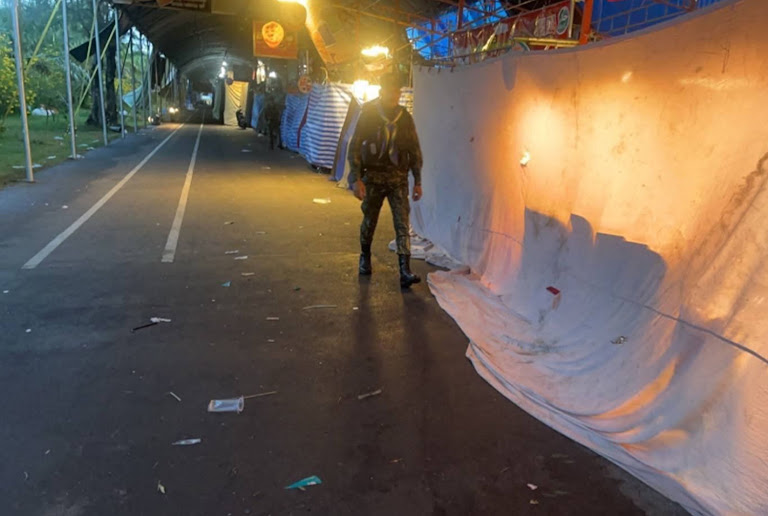Pattani Bombing Injures Seven; Insurgents Aim to Disrupt Daily Life.
Targeting Pattani’s Red Cross fair, injuring seven, reveals insurgents' strategy to instill fear and disrupt daily life for ordinary citizens.

The bombing of the annual Red Cross fair in Pattani, Thailand, injuring seven people, is more than just a tragic news event; it’s a stark illustration of how low-level, protracted conflict chips away at the very foundations of civil society. Pattani, a province in Thailand’s Deep South, has been plagued by separatist violence for decades. What may have once been conceived as acts of rebellion, even resistance, ultimately metastasizes into acts that harm the very communities they ostensibly seek to liberate. The Red Cross fair, an event designed to promote humanitarian aid and cultural exchange, becomes yet another target.
The details matter. These weren’t precision strikes aimed at military targets. The bombs, hidden in a security booth and streetlight poles, went off in the early morning hours, impacting vendors preparing for the day. This suggests a strategy, whether intentional or not, of sowing fear and disruption among ordinary citizens. It’s an attack on the sense of normalcy, on the fragile threads that hold a community together. The choice of target and timing speak volumes about the potential motivations:
- Disrupting community gatherings and economic activity.
- Undermining trust in local authorities and security forces.
- Further polarizing relations between the government and the local population.
The long-term consequences of such acts extend far beyond the immediate injuries. The psychological toll on residents who must now grapple with the constant threat of violence is incalculable. It reinforces a cycle of fear, resentment, and distrust, making it even more difficult to build lasting peace. What opportunities for understanding, reconciliation, and progress are destroyed when an organization committed to helping people is attacked? What progress is made when victims are everyday members of the community trying to scrape by?
When civilian spaces like Red Cross fairs become targets, the underlying message is that nowhere is truly safe. That fear, more than any explosive, is the most devastating weapon of all.
Beyond the immediate tragedy, this attack points to systemic failures in conflict resolution and governance. A heavy-handed security response, while perhaps necessary in the short term, will likely exacerbate the underlying tensions. What is needed is a comprehensive approach that addresses the root causes of the conflict, promotes inclusive dialogue, and empowers local communities to build a more peaceful future. Simply suppressing acts of terror without dealing with poverty, political grievances, and social marginalization creates the conditions for further radicalization and violence. Pattani’s tragedy is thus a window into the complex dynamics of protracted conflict, reminding us that sustainable peace requires more than just security; it demands justice, inclusivity, and a relentless commitment to building a society where everyone can feel safe and valued.









